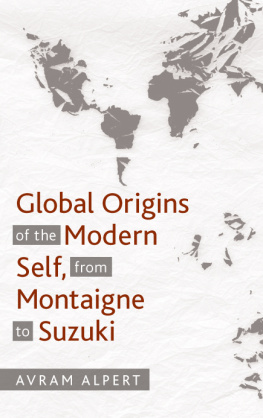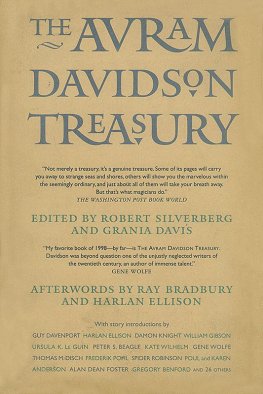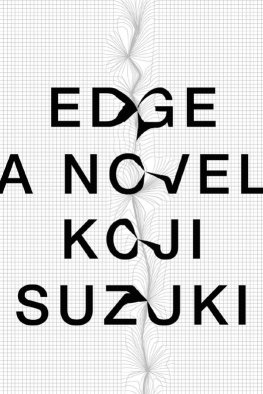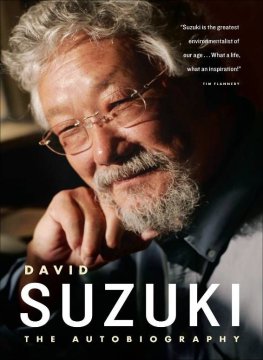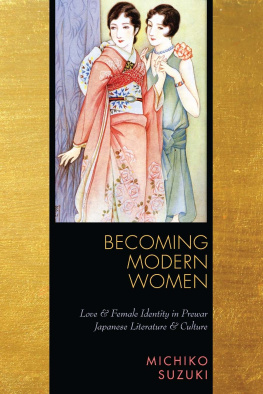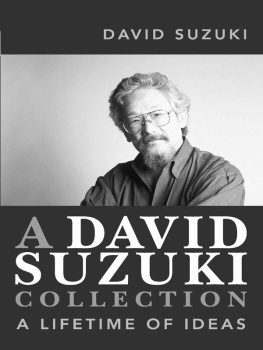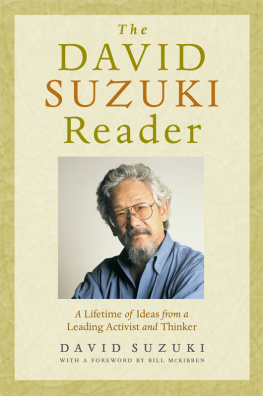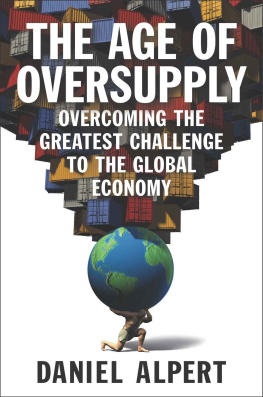Avram Alpert - Global Origins of the Modern Self, From Montaigne to Suzuki
Here you can read online Avram Alpert - Global Origins of the Modern Self, From Montaigne to Suzuki full text of the book (entire story) in english for free. Download pdf and epub, get meaning, cover and reviews about this ebook. year: 2019, publisher: State University of New York Press, genre: Religion. Description of the work, (preface) as well as reviews are available. Best literature library LitArk.com created for fans of good reading and offers a wide selection of genres:
Romance novel
Science fiction
Adventure
Detective
Science
History
Home and family
Prose
Art
Politics
Computer
Non-fiction
Religion
Business
Children
Humor
Choose a favorite category and find really read worthwhile books. Enjoy immersion in the world of imagination, feel the emotions of the characters or learn something new for yourself, make an fascinating discovery.
- Book:Global Origins of the Modern Self, From Montaigne to Suzuki
- Author:
- Publisher:State University of New York Press
- Genre:
- Year:2019
- Rating:4 / 5
- Favourites:Add to favourites
- Your mark:
- 80
- 1
- 2
- 3
- 4
- 5
Global Origins of the Modern Self, From Montaigne to Suzuki: summary, description and annotation
We offer to read an annotation, description, summary or preface (depends on what the author of the book "Global Origins of the Modern Self, From Montaigne to Suzuki" wrote himself). If you haven't found the necessary information about the book — write in the comments, we will try to find it.
Global Origins of the Modern Self, From Montaigne to Suzuki — read online for free the complete book (whole text) full work
Below is the text of the book, divided by pages. System saving the place of the last page read, allows you to conveniently read the book "Global Origins of the Modern Self, From Montaigne to Suzuki" online for free, without having to search again every time where you left off. Put a bookmark, and you can go to the page where you finished reading at any time.
Font size:
Interval:
Bookmark:

from Montaigne to Suzuki
from Montaigne to Suzuki
AVRAM ALPERT

Cover: Clarissa Tossin, Unmapping the World , 2011 (detail). Ink on tracing paper, 33 in. 46 in. Photograph by Hai Zhang.
Published by State University of New York Press, Albany
2019 State University of New York
All rights reserved
Printed in the United States of America
No part of this book may be used or reproduced in any manner whatsoever without written permission. No part of this book may be stored in a retrieval system or transmitted in any form or by any means including electronic, electrostatic, magnetic tape, mechanical, photocopying, recording, or otherwise without the prior permission in writing of the publisher.
For information, contact State University of New York Press, Albany, NY
www.sunypress.edu
Library of Congress Cataloging-in-Publication Data
Names: Alpert, Avram, 1984 author.
Title: Global origins of the modern self, from Montaigne to Suzuki / Avram Alpert.
Description: Albany : State University of New York, [2019] | Includes bibliographical references and index.
Identifiers: LCCN 2018021838 | ISBN 9781438473857 (hardcover : alk. paper) | ISBN 9781438473864 (ebook)
Subjects: LCSH: Self (Philosophy)History.
Classification: LCC BD438.5 .A47 2019 | DDC 126.09dc23
LC record available at https://lccn.loc.gov/2018021838
10 9 8 7 6 5 4 3 2 1
Thought in reality spaces itself out into the world.
douard Glissant, Poetics of Relation
In this enchanted mood, thy spirit ebbs away to whence it came; becomes diffused through time and space forming at last a part of every shore the round globe over.
There is no life in thee, now, except that rocking life imparted by a gentle rolling ship But while this sleep, this dream is on ye, move your foot or hand an inch; slip your hold at all; and your identity comes back in horror. Over Descartian vortices you hover. And perhaps, at midday, in the fairest weather, with one half-throttled shriek you drop through that transparent air into the summer sea, no more to rise for ever. Heed it well, ye Pantheists!
Herman Melville, Moby Dick
Contents
Preface
T his book began as an analysis of the work of D. T. Suzuki and the impact he had on global culture. Suzuki, though rarely studied today, was the man who brought Zen to the West. Through his English-language writings and lectures, which were quickly translated into French, German, Spanish, and other languages, he would influence a bewildering range of figures, including Simone Weil, Andy Warhol, Richard Wright, bell hooks, John Cage, Jorge Luis Borges, Octavio Paz, Severo Sarduy, Agnes Martin, Ad Reinhardt, Allen Kaprow, Allen Ginsberg, Erich Fromm, Karen Horney, Martin Heidegger, Carl Jung, Karl Jaspers, William Empson, Northrop Frye, Roland Barthes, Michel Foucault, and Gilles Deleuze. But throughout the 1980s and 1990s, and even in his day, Suzuki was criticized for Westernizing Zen. Buddhist studies scholars felt almost like Suzuki had put them in a prison of Zen simplicity, where everything was about freedom from anxiety, emptiness, the loss of ego, spontaneity, and other themes commonly associated with Zen today. Those who actually went to Japan or China or Southeast Asia quickly found, however, that Zen was as complex, corrupt, historical, and anxiety-filled as any other form of life. Suzuki had lied, they claimed, and the torrents of critique began to rain down.
My first thought was simply to reread Suzuki himself, understanding that although he had reinvented Zen, his reinvention was still meaningful and deserved consideration (as much as any other modernization of religion, such as those by Martin Buber or Paul Tillich). Moreover, certainly there was something to say about figures like Cage, Foucault, and Paz and how they should be understood in light of this critical reception of Suzuki. But I quickly realized that the excessive (if correct) critiques of Buddhist studies scholars were not, in fact, the problem. Because the more I read of Suzukis work, the more I realized he was in dialogue with figures like Kant, Schiller, Hegel, and Emerson, and that if I was to understand Suzuki, I would have to understand these thinkers as well.
And this presented a new challenge. For just as Suzuki was read as a Westernizer, so were they . Of course that seems obviousthey were Western. And yet their works are filled with references to peoples and philosophical systems the world over. Montaigne, Rousseau, Kant, and Emerson read as much about non-European cultures as Suzuki did about European cultures. Why is he viewed as a Westernizer, while they are viewed as global thinkers? What if we were to change the frame in which we read both Suzuki and the Euro-American tradition, and consider their works from the point of view of how they engaged the globe? Might that also affect how we read figures like Du Bois and Fanonno longer as outside critics of the European tradition, but rather as entangled in the same struggle for global thought? These are the questions that animate this study.
My claim is that the question of the globethat is, the question of what kinds of selves and institutions we should form to confront our global connectednessis as central to modernity as the discourses of rationality, autonomy, or aesthetics. In fact, as I show in the chapters that follow, the question of the globe helps to constitute these other discourses. That this happened is undeniableits right there in the texts. Its meaning, however, is disputable. The argument of this book is not that we should discard Europe because of its impoverished understanding of others, nor should we brush European thinkers mistakes aside as if they were mere historical blunders. (Early pluralist figures like Montaigne and Herder haunt our ability to historicize away the racism of the canon.) Rather, we should take the problem of the globe seriously and understand how the attempt to think it was dealt with by different thinkers at different times and different places.
To rethink Suzukis work, then, I had to go back through many writers before him. As I worked back to Kant, I realized he was incomprehensible without Rousseau, and Rousseau in turn without Montaigne, and this whole history without critics such as Fanon, Du Bois, and bell hooksall of whom, significantly, worked in the form of the essay. From Montaigne to Emerson to Suzuki to hooks, I am tracing a styleessaying the globethat is neither philosophy nor literature, but rather a tentative thinking through of ideas about how to inhabit this planet that remains reflective about how those ideas are made in time, place, and language. This book is the story of how different writers at different times and places attempted this tenuous and difficult practice. In it, I argue for some of their solutions and against others. To do this, I develop an ethical vocabulary around unbearability, identity, globality, and the need for a more radical pluralism. Suzuki is no longer the focus of the book, but his vision of a subject who undoes her ego so that she may experience the totality of global being will, I hope, find its place in a history of global thought.
Acknowledgments
T his book first developed during my undergraduate education more than a decade ago. Since that time I have accrued debts both intellectual and personal, which are far more extensive than this brief acknowledgment can fairly accomplish. As an undergraduate, tienne Balibar, Rosalyn Deutsche, Bruce Robbins, and David Scott provided me with my first lessons in philosophical, literary, and cultural criticism. I frequently returned to their words and works throughout my writing. I owe special thanks to Bruce for keeping up a dialogue with me about this work over many years.
Font size:
Interval:
Bookmark:
Similar books «Global Origins of the Modern Self, From Montaigne to Suzuki»
Look at similar books to Global Origins of the Modern Self, From Montaigne to Suzuki. We have selected literature similar in name and meaning in the hope of providing readers with more options to find new, interesting, not yet read works.
Discussion, reviews of the book Global Origins of the Modern Self, From Montaigne to Suzuki and just readers' own opinions. Leave your comments, write what you think about the work, its meaning or the main characters. Specify what exactly you liked and what you didn't like, and why you think so.

